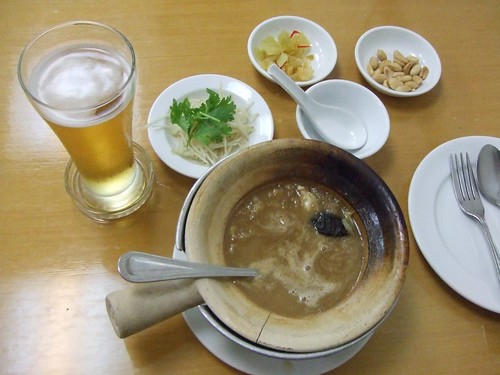 About 6 percent of luxury hotels in three major Chinese cities have stopped serving shark fin, a survey has found. Although the controversial delicacy remains on the menu at most hotels, Green Beagle Environment Institute, a Beijing-based non-government organization that was the main sponsor of the survey, said the results are encouraging and reflect increased awareness.
About 6 percent of luxury hotels in three major Chinese cities have stopped serving shark fin, a survey has found. Although the controversial delicacy remains on the menu at most hotels, Green Beagle Environment Institute, a Beijing-based non-government organization that was the main sponsor of the survey, said the results are encouraging and reflect increased awareness.The survey was carried out in Beijing, Shenzhen in Guangdong province and Fuzhou in Fujian province, which were selected as representative cities to collect basic data on shark fin consumption nationwide.
In Beijing, 132 hotels completed the phone questionnaire between Nov 20 and Dec 12. Only 12 hotels, 9 percent, said they do not serve shark fin. A similar survey of 131 Beijing hotels conducted a year ago found only one hotel that did not serve shark fin, Wang Xue, chief coordinator of the survey, said on Saturday.
In Shenzhen, four out of the 85 four and five star hotels surveyed had stopped serving shark fin, accounting for about 5 percent. In Fuzhou, only one of the 40 hotels surveyed did not serve shark fin.
On average, about 6.61 percent of the hotels in the three cities did not serve the food.
"The survey reminded us there is still a long way to go to remove shark fins from Chinese hotels and restaurants, but the improved situation in Beijing is encouraging," said Wang. "We found more hotels and restaurants were willing to take action over the past year."
International hotels are more active in the "shark-fin-free" project, she noted. Shangri-la, Peninsula, JW Marriot, Accor and Starwood are among the hotels that have declared they will not serve shark fin.
China is the world's biggest importer and consumer of shark fin, which has been used in luxurious Chinese dishes for 500 years. Dishes made from shark fin are still regarded as a symbol of honor and respect, especially at business dinners, according to Wang.
"Our awareness-raising mainly targets the luxury hotels, restaurants and businessmen associations," she said.
Her organization has held talks with China Hotel Association and discussed the association adding "shark fin free" into its scoring system for hotels hoping to gain the Green Hotel or Green Restaurant label, said Wang.
Displays of dried shark fin in hotels and restaurants are expected to soon be banned by the hotel association.
"We hope hotels and restaurants remove shark fin products from their menus," Wang said.
The Chinese government pledged to ban shark fin products from government banquets in late June, but the regulation is expected to take three years to release officially. The NGOs that oppose shark fin consumption aim to protect the decreasing number of sharks in the ocean and stop shark-finning, a practice that condemns the finless sharks to a slow death.
Research has also found that shark fin contains poisonous elements, including lead and mercury, but the nutritious value is less than that of chicken or pork.
Some fishing associations in China say shark fin products should not be banned and deny shark-finning occurs. They claim a ban on the fins will lead to waste when sharks are captured with other fish.
Source: PeopleDaily.com
Photo courtesy of Yasushi00 via Flickr (CC BY 2.0)
